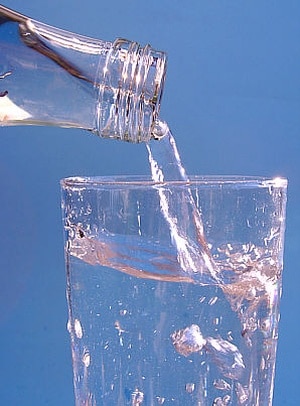#WeTakeCareOfPeople

The benefits of a balanced, nutritious diet are well documented and these apply throughout all stages of our lives. Good hydration and nutrition is an important part of staying healthy as we get older, but research suggests that 1 in 4 older Americans have poor nutrition. Not only does this make them more susceptible to disease but it can sap their energy, weaken their bones, and have a detrimental effect on their lifestyle and abilities as their body ages.
So, what can seniors do to ensure that they are getting the nutrients they need to remain fit, active, and well? Here are just a few tips on staying healthy in later life.
A Healthy Diet
Throughout life we are constantly warned of the dangers of overeating rather than undereating, but as we age our appetites may diminish as our sense of taste and smell become weaker. While consuming more calories than you burn can lead to weight gain, not getting enough can lead to malnutrition which can cause serious health problems. As such, it is important to ensure that seniors eat a balanced diet that provides them with the vitamins and minerals that their bodies need to generate energy, boost immunity and keep them strong and active. Many seniors rely on chilled convenience meals which tend to have high levels of salt, sugar, and fat. To meet your nutritional needs, aim to eat more foods that are rich in fiber, vitamins, minerals, and other nutrients.
Hydration
Hydration is particularly important in the elderly. Even slight dehydration can lead to low mood, poor concentration, and fatigue. Severe dehydration can cause seizures, strokes and, in extreme cases, can be fatal. Older people are prone to dehydration for a number of reasons. The physiological changes we experience as we age, such as renal decline and impaired cognitive function, may decrease our thirst sensation. Certain diuretic medications can also cause dehydration and seniors who experience mobility issues may simply struggle to get themselves a drink. Seniors need to ensure that they are drinking more than the recommended minimum of 1700ml per day. Fluids can also be taken in the form of broths, ice cubes and certain fruits such as watermelon.
Exercise
As we age it is natural that we may not be able to exert the same amount of physical activity as we did when we were younger. However, there are still plenty of simple exercises that seniors can do to help themselves stay in shape. Balance and flexibility exercises can be particularly useful for staying limber while moderate strength and endurance exercises can keep their muscles and organs healthy. Exercise is also linked to happiness and good cognitive function as the brain releases serotonin – the so-called happy hormone – as our heart rate increases. So, a daily walk won’t just get your body in shape but it can also make you feel mentally healthy too.
Jess Walter, Freelance Writer
Image:By W.J.Pilsak at the German language Wikipedia, CC BY-SA 3.0, https://commons.wikimedia.org/w/index.php?curid=194110